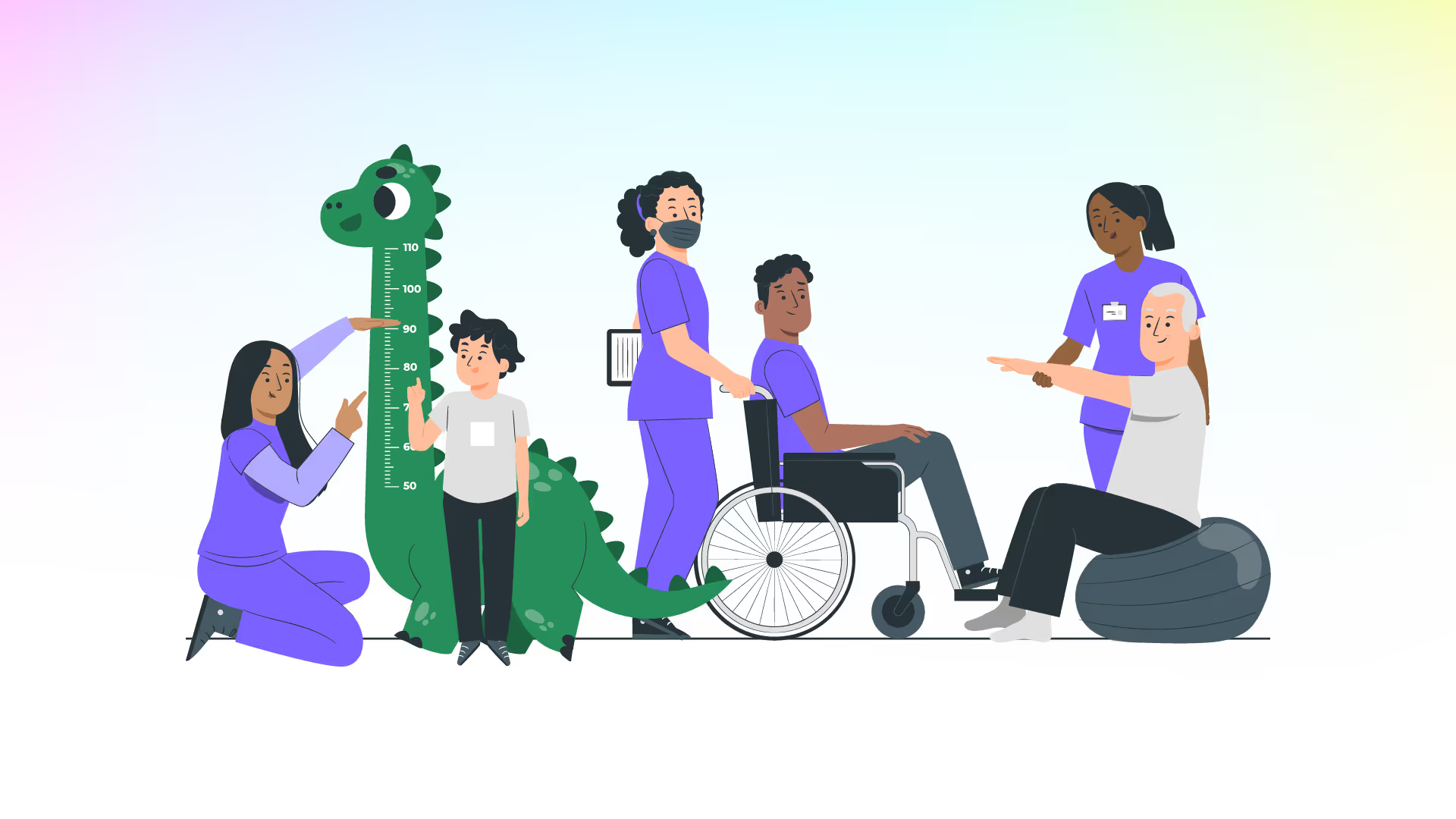Family care is anything but routine. Behind every cough, sore throat, or urinary complaint is a deeper story, a story that often includes not just the patient’s health, but the wellness of the whole family.
As Nurse Practitioners, you are not just treating symptoms; you are building relationships, honoring personal histories, and creating therapy journeys of growth for patients and families alike. Your mission is to improve health and well-being by providing comprehensive and personalized care across various services.
In community health centers, private practices, and urgent care settings across the country, NPs are reshaping what high-quality healthcare looks like for diverse communities. They are committed to providing high quality care that benefits individual families and strengthens the overall health of the community.
Mastering family healthcare today means honing your clinical expertise while recognizing how personal, social, and family factors impact patient outcomes. Whether managing a case in adult medicine, women’s health care, pediatrics, or behavioral health care, your role is vital in delivering complete care across the lifespan.
Working in a private practice dedicated to family medicine or a community health center offering a full range of services, mastery demands continuous learning, thoughtful family assessment, preventive medicine, and an effective personal style grounded in evidence-based models.
To support your growth, we’ve drawn insights from Dr. Sandra Pagenta, DNP, ANP-BC, a trusted expert in family healthcare and clinical excellence. For a deeper dive into key conditions and patient-centered strategies, download the FREE Family Primary Care guide today.
Clinical mastery in Action: Conditions every NP must command
Understanding patient care in context is essential for Nurse Practitioners working in family healthcare. It’s not enough to diagnose and treat immediate medical care needs; true mastery involves recognizing the patterns, environmental influences, and family dynamics that shape each patient’s experience of illness. Board-certified physicians play a crucial role in providing specialized care, ensuring that patients receive comprehensive healthcare tailored to their specific needs.
By refining your approach to common yet complex conditions, you can deliver care that is more precise, more compassionate, and more impactful across a patient’s entire family system. The collaborative effort of your healthcare team, including experienced and compassionate professionals, is vital in delivering high-quality services in various settings such as flu clinics, urgent care, and family care services.
Whether you’re in a bustling health center, coordinating care for adults and children, or working closely with families navigating poor health and chronic illnesses, the skills you build now define the future of patient progress.
Here’s a closer look at how mastering key family health conditions can elevate your practice:
Sinusitis management beyond the basics
Sinusitis can seriously affect patients’ quality of life and is often more complex than it seems. Differentiating between acute, subacute, chronic, and recurrent cases and tailoring treatments like nasal corticosteroids or appropriate imaging is crucial for effective management. Patients must be treated comprehensively, addressing not only the physical symptoms but also considering their involvement in their own care and wellness.
Mastering family medicine includes recognizing when symptoms extend beyond the individual and may reflect larger environmental, family, or lifestyle factors influencing overall health.
Tackling Upper Respiratory Infections (URIs)
URIs are frequent encounters in family practice and urgent care clinics, but their commonplace nature does not make them less complex. Correctly distinguishing between viral and bacterial infections is critical for responsible antibiotic stewardship, preventive medicine, and improved health outcomes.
Vaccinations play a crucial role in preventing upper respiratory infections by providing immunizations that protect against various contagious illnesses.
Effective family care means not only treating the patient but empowering families with wellness education that supports better community health long-term.
Chronic cough: A multifaceted approach
A persistent cough is more than an annoyance — it can reveal deeper underlying conditions such as asthma, gastroesophageal reflux, or even behavioral health challenges like anxiety.
Effective management demands a comprehensive diagnostic plan: beginning with a detailed history, progressing through focused testing, and tailoring treatment options, including appropriate medications, based on both medical needs and social determinants of health.
UTI Management
Urinary tract infections remain a significant concern in family care settings, often requiring more than routine treatment protocols.
Emerging antibiotic resistance patterns highlight the need for personalized strategies that incorporate drug treatments, lifestyle counseling, patient education, and whole family wellness approaches. Complete care involves treating today’s infections while preventing tomorrow’s complications.
Confronting hypertension
Hypertension, often labeled the “silent killer,” is one of the most common and dangerous chronic illnesses seen by primary care providers. Early identification, patient education, and lifestyle modification counseling are critical for long-term success.
It is essential to schedule regular check-ups and follow-ups to ensure effective hypertension management.
Helping patients and families understand dietary habits, stress management, medication adherence, and preventive strategies is key to achieving sustainable progress and reducing emergency room visits down the line.
Family-centered diabetes management
Type 2 diabetes is a growing concern affecting both adult and pediatric populations, especially within underserved communities. Managing diabetes effectively requires moving beyond prescriptions to incorporate behavioral change, nutritional counseling, and mental health support.
By taking a family-centered approach, providers can help influence healthy habits, improve blood sugar control, and create ripple effects that support the entire family’s wellness journey. Providers are committed to supporting this journey, ensuring that every family member receives the care and guidance needed to manage diabetes effectively.
Mental health in family practice
Mental health care is foundational to family healthcare today. Depression and anxiety often surface first in primary care visits, urgent care check-ins, and community health screenings.
Psychiatry plays a crucial role in comprehensive mental health care by providing assessment and treatment services for various mental, emotional, and behavioral disorders. Mastering family care includes integrating behavioral health assessments into your practice — offering early interventions, medication support where needed, and referrals to specialized services when appropriate. When you treat mental health proactively, you strengthen not just individuals but whole family units.
Spotting red flags and warning signs you shouldn't ignore
Mastering family care means looking beyond surface complaints and identifying deeper health risks early. Physicians and Nurse Practitioners working in health centers, private clinics, and community health centers are in a key position to recognize these warning signs and ensure patients receive the complete care they need.
Spotting red flags early is critical to providing high-quality healthcare and supporting long-term wellness for the whole family. Here are some important ones to stay alert to during family care visits:
Unexplained weight loss or gain:
Significant, unintentional changes in weight can be early indicators of underlying chronic illnesses such as uncontrolled diabetes, thyroid dysfunction, cancer, or serious mental health issues like depression. A primary care provider who takes time to investigate these changes can intervene early and offer vital support services, including behavioral health care and nutritional counseling.
Persistent fatigue:
Chronic fatigue that extends beyond normal life stressors could signal a range of conditions, from anemia and sleep apnea to autoimmune disorders or poor mental health. Identifying fatigue patterns during a visit can lead to preventive medicine interventions that improve life quality and reduce emergency room visits in the future.
Recurrent infections:
Multiple infections in a short span often point to poor health, untreated diabetes, immunodeficiencies, or even medication-related issues.
In family medicine settings, paying close attention to infection patterns can prompt timely referrals, laboratory workups, and lifestyle assessments that benefit the whole family’s health trajectory. It is crucial to ensure that underlying conditions causing recurrent infections are properly treated to prevent further health complications.
Uncontrolled hypertension:
Persistently high blood pressure despite ongoing treatment is a major red flag. It may indicate renal disease, medication non-adherence, or lifestyle challenges within the family structure.
Medications play a crucial role in managing hypertension effectively, and primary care providers at clinics and community health centers must address these findings swiftly to prevent complications such as strokes, heart attacks, and poor health outcomes.
Behavioral changes:
Sudden shifts in mood, personality, or functioning often indicate emerging behavioral health concerns. Increased anxiety, withdrawal, irritability, or cognitive decline should trigger mental health care assessments.
Psychiatry play s a crucial role in providing assessment and treatment services for various mental, emotional, and behavioral disorders, offering flexible treatment plans that cater to individual patient needs, which may include psychotherapy and medication options. Incorporating behavioral health into routine medical care visits ensures early interventions that protect the patient’s mental and physical wellbeing.
Missed immunizations
Patients who miss regular wellness checks, vaccinations, and health screenings may face greater long-term health risks. Gaps in preventive medicine often stem from barriers like transportation, health literacy issues, or systemic obstacles.
Untreated dental issues:
Dental pain, infections, or visible tooth decay are more than oral health concerns; they often indicate broader health challenges such as diabetes, poor nutrition, or lack of access to affordable healthcare.
Drug treatments play a crucial role in managing dental pain and infections, highlighting the importance of addressing these issues promptly. Since oral health is deeply tied to overall health, primary care providers who screen for dental issues during medical care visits contribute to truly complete care for their patients.
Your journey to mastering Family Healthcare
Family healthcare is a journey of continuous growth, reflection, and clinical refinement. Whether you are just starting out, mentoring the next generation, or refining your practice as an experienced clinician, success requires humility, adaptability, and lifelong learning.
Today’s Nurse Practitioners are called to navigate the delicate balance between clinical precision and genuine human connection — delivering care that sees the patient as part of a larger, interconnected story.
The FREE Family Primary Care guide is designed to support you on this journey offering evidence-based strategies, real-world case insights, and practical tools to strengthen both your clinical skills and your impact on families. Mastering family healthcare isn’t just a milestone; it’s a commitment to making every patient interaction more informed, compassionate, and transformative. We are committed to continuous growth and improvement in family care, ensuring that every patient receives the highest quality of care.
Frequently Asked Questions
1. What does mastering family mean in healthcare?
It means approaching patient care holistically, recognizing that health outcomes are shaped by a whole-person approach in healthcare, considering personal, social, and family dynamics — not just isolated symptoms.
2. Why is understanding societal context important in family care?
factors like income, education, housing, and access to care. A holistic view leads to better, more sustainable health outcomes.
3. How can new Nurse Practitioners build an effective personal style?
By learning from mentors, studying case material highlighting real-world challenges, and developing an empathetic, patient-centered communication style.
4. What skills are essential for mastering family healthcare?
Strong family assessment skills, evidence-based clinical practices, and the ability to educate and empower patients and families are essential. Respecting individuality in both healthcare providers and the individuals they serve is crucial for delivering personalized attention and care.
5. How can advanced study help Nurse Practitioners deliver better care?
Programs in family studies, clinical practice seminars, and continuing education offer NPs structured frameworks and practical strategies to navigate complex cases with a clear vision for delivering better care.
Find a preceptor who cares with NPHub
Book a rotation.webp)








.webp)


.webp)



%20(3)%20(2).svg)
.webp)